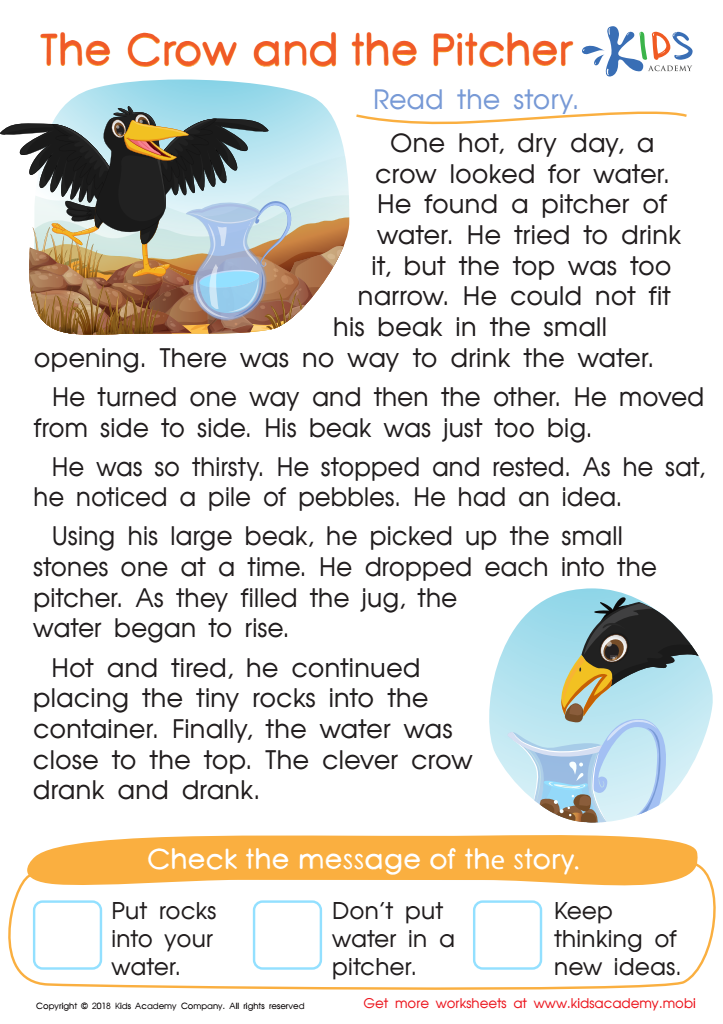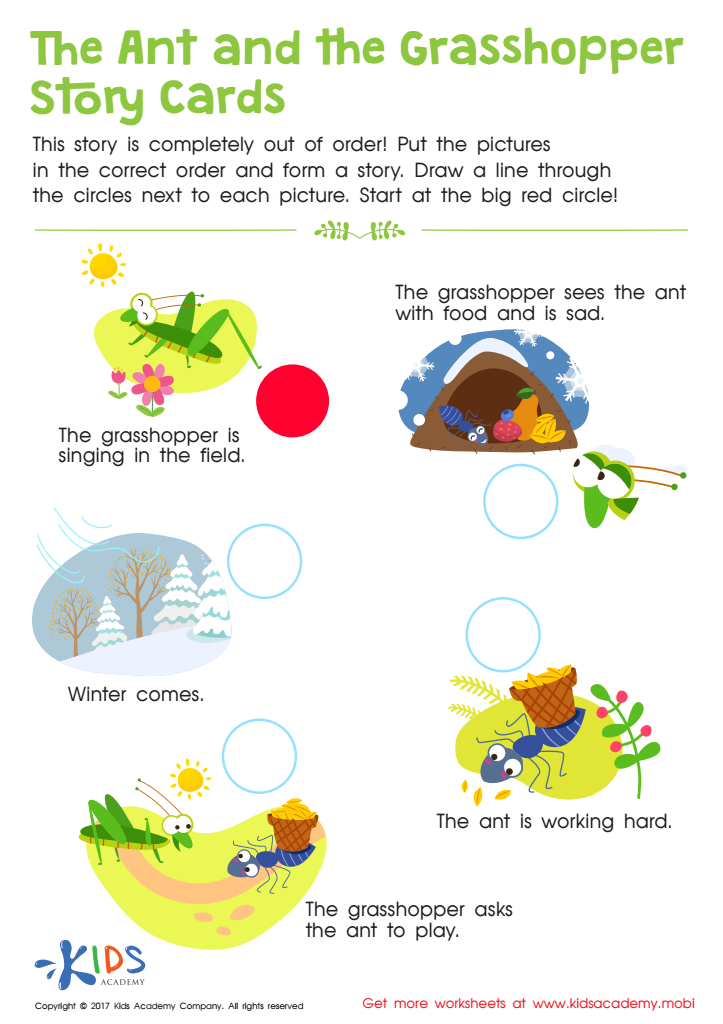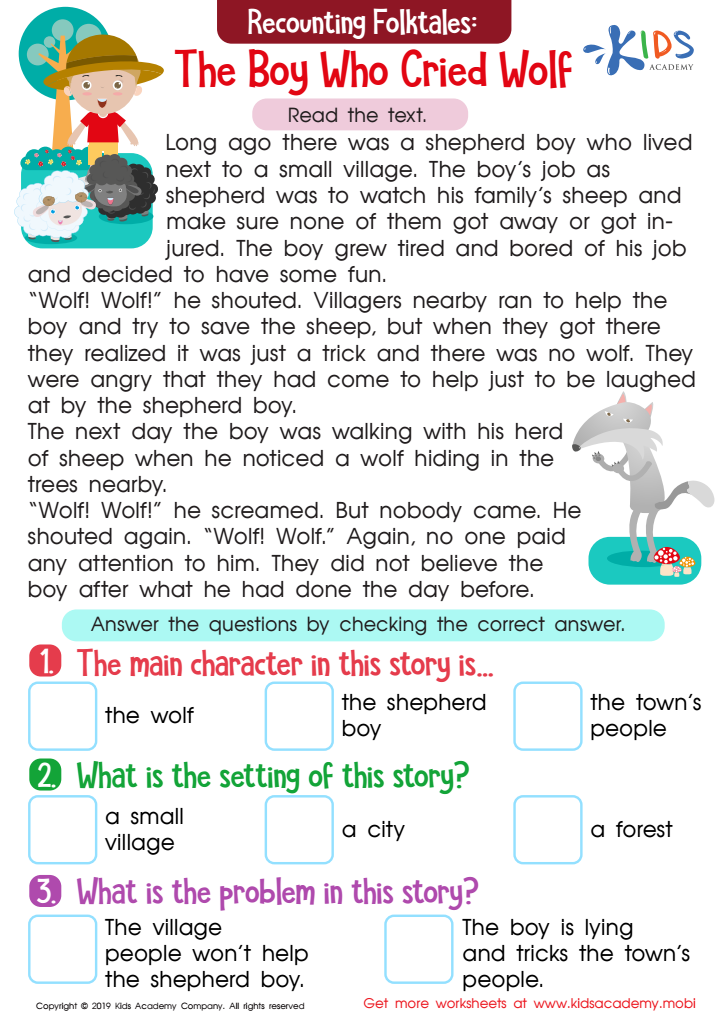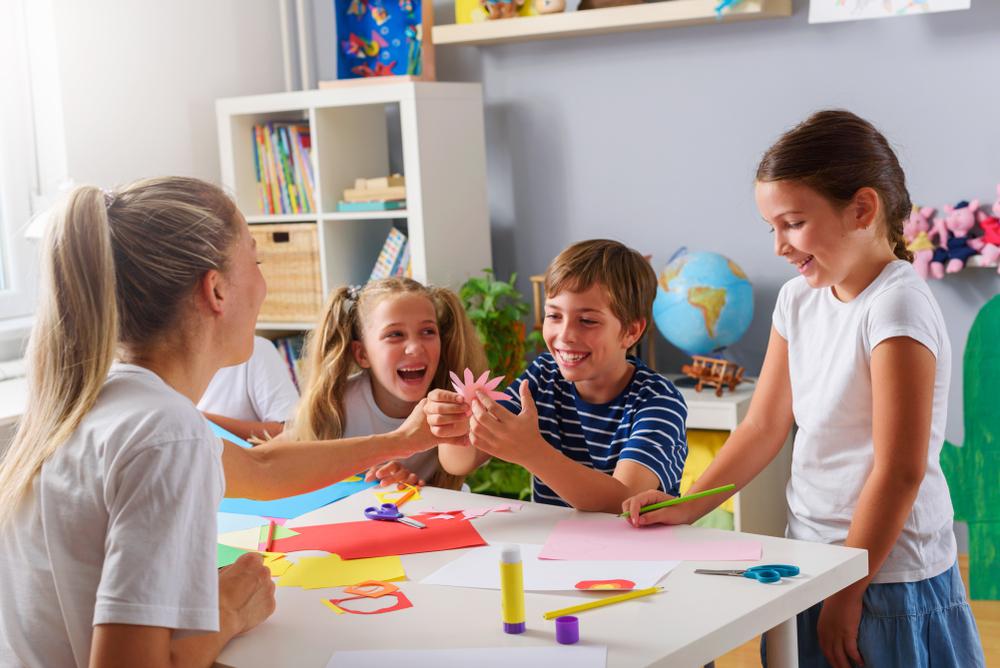Moral understanding Normal Reading Comprehension Worksheets for Ages 8-9
3 filtered results
-
From - To
Discover engaging Moral Understanding Normal Reading Comprehension Worksheets for children ages 8-9 on Kids Academy! These thoughtfully designed worksheets enhance critical thinking by blending reading skills with moral lessons. Your child will explore captivating stories that inspire discussion about ethics, empathy, and values. Our user-friendly printables encourage students to draw connections between literature and real-life situations, fostering a deeper understanding of moral dilemmas. Perfect for classroom use or at-home learning, these worksheets promote reading fluency while instilling important life lessons. Empower your young learners to navigate complex social issues and build a solid moral foundation with our comprehensive resources. Start their journey today!


The Crow and the Pitcher Worksheet


The Ant and The Grasshopper Worksheet


The Boy Who Cried Wolf Part 1 Worksheet
Moral understanding is a crucial component of reading comprehension for children ages 8-9, as it enhances their ability to interpret and engage with texts on a deeper level. At this age, children are begining to explore complex themes such as fairness, empathy, and justice in stories. When they possess moral understanding, they can connect characters’ actions and decisions with larger moral implications, leading to enriched discussions about stories and life lessons. This, in turn, promotes critical thinking and emotional intelligence, equipping children with valuable skills necessary for navigating social interactions and ethical dilemmas.
Teachers and parents play a pivotal role in fostering this moral understanding. They can provide guidance through discussions, encourage children to share their perspectives, and ask questions that prompt deeper analysis. Engaging with stories that present moral conflicts or dilemmas can also spark interests and encourage children to reflect on their values and the feelings of others.
Ultimately, cultivating moral understanding not only supports reading comprehension but also helps children to develop as compassionate, thoughtful individuals. As children become better readers and morally aware thinkers, they are more prepared to constructively participate in the world around them—an essential skill as they grow and face diverse experiences.

 Assign to My Students
Assign to My Students






.jpg)









